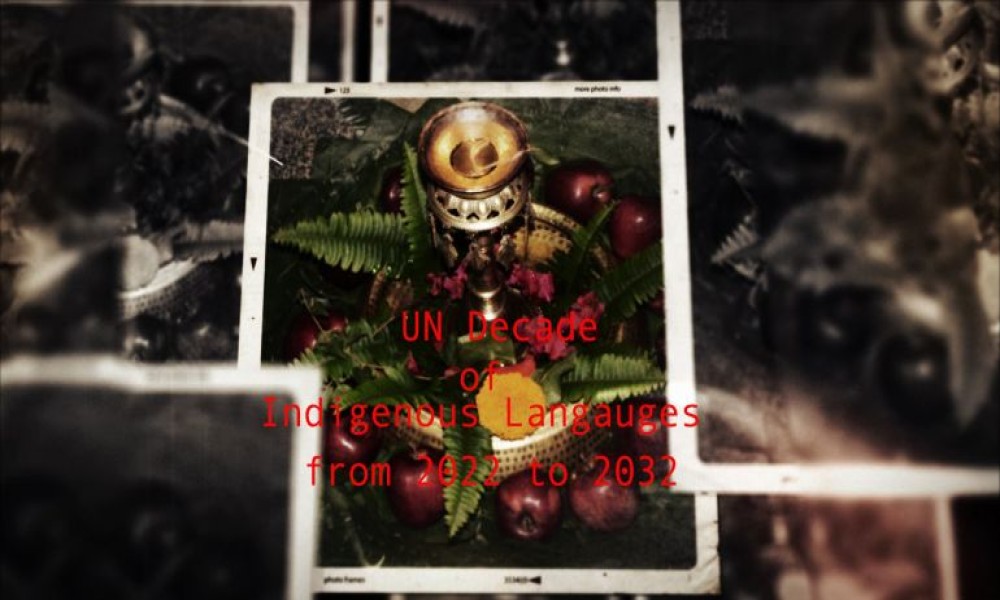By adopting a resolution on the occasion of closing ceremony of international year of indigenous languages 2019, United Nations declared international decade of indigenous languages beginning from 2022. The year 2020-2011 is a preparatory process for the effective observation of a decade.
On October 18, the high level formal closing ceremony of international year of indigenous languages was held at UN General Assembly hall at New York headquarter, which adopted a resolution no. 12231, which proclaims ‘2022-2032 as the international decade of indigenous languages. In the resolution, the UN also invited ‘indigenous peoples—as custodians-to initiate ideas for preserving this endangered faces of their cultural and social life.
United Nations declared international decade of indigenous languages from 2022 to 2032.
The resolution was based on the recommendations made by the 3rd committee of UNGA (relating to social, humanitarian and cultural issues) led by Ecuador and Bolivia. The committee had recommended UNGA to adopt a decade on its 74th session held on 7 November.
“the proclamation of a decade aimed to draw attention to the loss of indigenous languages and the urgent need to preserve and promote them and also to take urgent steps at the national and international levels,” reads the press release issued by UNGA.
The United Nations Educational, Scientific and Cultural Organization will serve as the lead agency for the international decade of indigenous languages, as it did for international year, in collaboration with the Department of Economic and Social Affairs of the Secretariat.
Despite the immense value, indigenous languages around the world continue to disappear at alarming rate. According to the UNESCO atlas of languages in danger, as many as 6,700 spoken in the world, 40 percent of which are in danger of disappearing.
In this connection, UN declared 2019 as ‘international year of indigenous languages’ and now for 2022-2032 as an ‘international decade of indigenous languages’.
‘there is a growing awareness that indigenous languages do not simply serve as cultural artefacts, rather they equip their users with an invaluable skill and expertise in different fields from the environment to education, the economy, social and policy life, including family relations,” says Irmgarda Kasinskaite, program specialist communication and information sector, UNESCO.
On every 15 days, at least one indigenous langauges vanishes form the face of the earth. Despite UN efforts throughout this international year of indigenous languages to highlight the daily disappearances of mother tongue across the world, the challenges still persist nonetheless.
Speaking at the closing of the 2019 International year of indigenous langauges in New York, President of General Assembly Tijjani Muhammad-Bande, said, “every fortnigh, at least one indigenous langauges vanishes form the face of the earth. Despite UN efforts throughout this international year of indigenous languages to highlight the daily disappearances of mother tongue across the world, the challenges still persist nonetheless.”
According to him, the year 2007 is milestone which adopted ‘declaration on the rights of indigenous peoples, which calls on states, among other things, to enact policies and laws aimed at preserving and strengthening indigenous languages, but the ‘status-quo is indeed grave’. There are only about 4000 surviving indigenous languages spoken by a mere 6 percent of the total world population.
From the death of languages, indigenous peoples lose their traditions but also their identity.
‘language barriers undermine due process of law in legal proceedings. Without accessible courts and institutions, indigenous peoples become vulnerable to actions by others that threaten their lands, natural resources, cultures, sacred sites or economic livelihoods,” says, Ms Anne Nuorgam, chair of Permanent Forum on Indigenous Issues (UNPFII), speaking at the closing event, “to this extent member states should formulate evidence-based policies, long-term strategies and regulatory frameworks, with the direct involvement of indigenous peoples, to ensure the protection and revitalization of indigenous languages that include adequate funding for implementation.”
Indigenous languages matter as these serve as means not only of indigenous traditions, or of indigenous knowledges, but also to transmit across generations including of food processing, medicines, dispute settlements and so forth. But with the death of languages, indigenous peoples are not only losing their traditions but losing their identity.









